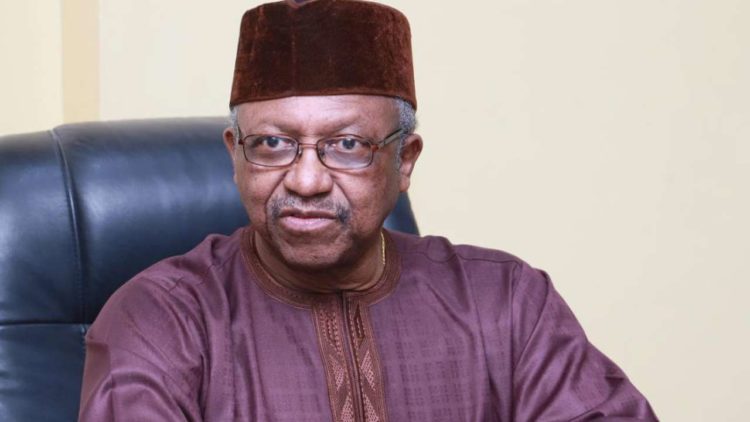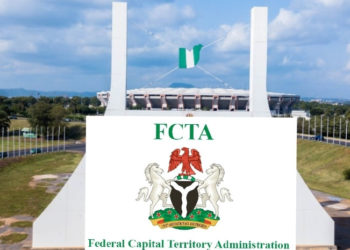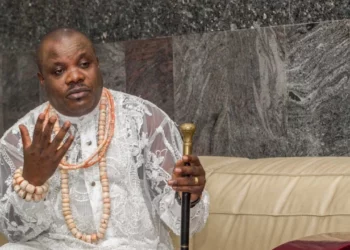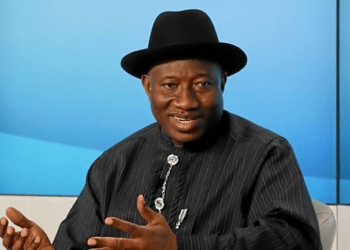Controversy has trailed the recent National Health Insurance Authority (NHIA) Bill signed by the federal government.
While applauding the move by federal government in ensuring that all Nigerians have access to quality healthcare irrespective of where they live, the Act is generating concerns among critical stakeholders in the health sector.
Particularly, stakeholders are concerned that the amount allocated to providers per person is rather low and would be inadequate to take care of enrollees
A healthcare practitioner, Dr Lekan Adelakun, has tasked the federal government to ensure that enrollees are allocated to healthcare providers equitably.
Adelakun told LEADERSHIP that, with the Act in place, healthcare providers will be paid as at when due. “However, the problem we have seen so far with the Act, is that the amount that is being offered to providers in most states in Nigeria is ridiculous. Some states are being offered about N300 per person (per live) per month and that is not acceptable in any way,” he said.
He explained that, the principle of managed care is that everybody put some money in a pool, so that they can be entitled to healthcare, without looking for money or paying out of pocket.
“In the case of the Act, it is assumed that not more than 20 to 25 per cent of the people would require healthcare services per month and it is also assumed that each healthcare provider would have a large number of enrolees. For instance, if a healthcare provider have like 1,000 enrolees and less than 100 visited the clinic, the hospital can still make money,” he said.
With this explanation, Adelakun said, the Act can only be feasible if providers have large number of enrolees attached to their clinics. But presently, providers don’t have that number of enrolees, he added.
To tackle this issue, the healthcare practitioner urged government to ensure that enrolees are shared equally among primary healthcare centres and private clinics. “This issue must be tackled because we have seen that the bulk of the enrolees are being mopped by secondary and tertiary hospitals. This ought not to be so, because the Act stated primary healthcare services,” he averred.
President Muhammadu Buhari recently signed into law the NHIA Bill to repeal the National Health Insurance Scheme Act of 1999 and established the NHIA.
The law mandates all employers and employees in public, private, and informal sectors to have access to health insurance. It is also expected to cover about 83 million poor Nigerians (vulnerable people such as children under five, pregnant women, aged, physically and mentally challenged persons, and indigent people) who cannot afford to pay health insurance premium.
The law states that a Vulnerable Group Fund will be set up to include a component of the Basic Health Care Provision Fund (BHCPF) due to the authority, Health Insurance levy, Special Intervention fund, and any investment proceeds, donations, and gifts to authorities to fund health insurance coverage for the vulnerable group.
To stakeholders in the health sector, this is a big step towards achieving Universal Health Coverage (UHC) in Nigeria, as it will eliminate out of pocket payment and ensure all Nigerians have access to quality healthcare services.
For seamless implementation of the Act, however, stakeholders have raised concern on issues of funding the health insurance for vulnerable group and even distribution of enrollees among healthcare providers.
For instance, analysts at United Capital Plc, said, funding the health insurance scheme could be a fiscal burden for the federal government, of which they may not be interested in shouldering, adding that in the end, successful implementation of the scheme will be a windfall for Health Maintenance Organisations (HMOs) in Nigeria.
They said, NHIA is an insurance model that aims to mitigate the risk of financial hardship when healthcare needs to be accessed by reducing huge out-of-pocket spending across the insured population pool, adding that, the bill is expected to ensure achievement of a UHC in Nigeria while ensuring provision for an estimated 83 million Nigerians who are considered poor and cannot afford to pay health insurance premium, via the Vulnerable Group Fund.
Despite the heavy investment into the NHIA scheme since its inception in 2004, little can be marked as progress towards inclusive National health insurance, they said.
“Ideally, a National Health Insurance Scheme should have a base equal to the nation’s general population. According to reports from a 2021 survey by NOI polls, about eight out of 10 Nigerians do not have health insurance. Another 2021 research data shows that only 3.0 per cent of Nigerians are covered by health insurance. It is also worth noting that of the 3.0 per cent, majority are in formal employment leaving those in the informal sector and vulnerable groups excluded.
“Another challenge faced by currently enrolled HMO users is limited coverage of health services, leaving users no choice but to supplement with out-of-pocket spending. Data from the WHO 2021 global service coverage database reveals Nigeria to have low level of service coverage and high level of catastrophic health spending,” they explained.
With eight more years to NHIA’s strategic goal of 90 per cent UHC of the population by 2030, analysts revealed that the NHIA will then be plagued with providing satisfactory health services at the minimum on a national scale.
However, affordability and cultural biases will remain a major stumbling block to wide coverage, they averred, explaining that, “for the health insurance scheme to be a success, the federal government will need to support with necessary funding, which could be another fiscal burden, one it may not be interested in shouldering. In the end, successful implementation of the scheme will be a windfall for HMOs in Nigeria.”
‘That is my greatest concern,’ the chairman, Public Health Sustenance Advocacy Initiative (PHSAI), Barrister Ayo Adebusoye told LEADERSHIP, adding that, the exemption of the one kobo per second tax was a big mistake.
Adebusoye said, the revenue from the one kobo per second tax on all GSM calls would have made the implementation of the scheme effective and seamlessly, thereby, transforming the health insurance scheme in Nigeria.
He said: “years ago, we calculated the amount of fund that would have been accrued from the tax to be N200 billion. Government would have been able to collect that fund seamlessly and that is one sure guarantee that the health insurance system would work. As people make calls, the one kobo per second tax goes to the Vulnerable Group Fund. That makes it seamless. Taxing tobacco companies or alcohol companies for instance, is not going to be easy, because you need to force the money out of their pockets.”
Recalling that the Vulnerable Group Fund is to be funded through the BHCPF, Health Insurance levy, Special Intervention fund, and any investment proceeds, donations, and gifts to authorities, Adebusoye said it is not feasible.
“That funds cannot be pulled out from state government either because they have their own expenses or as for the federal government, it is broke. It keeps borrowing money to fund projects in the country. We cannot even pull the funds from the BHCPF, because it is not enough to take care of the projects it was set up for in the first place,” he added.
He urged the government to amend the Act by including the one kobo per second tax. “If we are convinced that we want health insurance to work in Nigeria and for the country to achieve universal health coverage, then we must have a sustainable means to fund health services for the vulnerable group. Healthcare is not cheap and cannot be provided free of charge. For us to achieve uhc, someone has to pay for it,” Adebusoye pleaded.
Meanwhile, some HMOs have applauded the federal government’s move in ensuring all Nigerians have unhindered access to quality healthcare.
For instance, the managing director, Ultimate Health Management Services, Ewenla Lekan, in an exclusive interview with LEADERSHIP stated that stakeholders have been waiting for the passage of this Act for several years, adding that it is a welcome development.
Lekan said he looked forward to seeing the Act being implemented in the country as it was put in place to ensure that healthcare is accessible to all Nigerians.
He said: “there is no law that will be passed across the globe that will favour everybody, but the basic fact is that the intention of government in passing this law and making the huge contribution was to ensure the wellbeing of Nigerians and I commend government for a job well done.”














